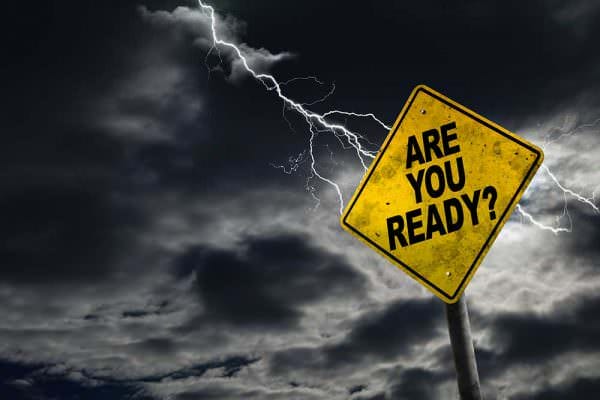By Brandon Martin


USA – -(Ammoland.com)- How does one cope with the knowledge that there isn’t some technological fix waiting in the wings to save humanity from itself?
On its face, coping with the knowledge that the way of life enjoyed by Americans since the conclusion of World War II is coming to an end can be seen as a ridiculous premise, but I’ve seen this knowledge and the conclusions drawn by it affect people in very different and very profound ways.
I’ve seen people (that probably weren’t the most stable to begin with) be pushed over the edge of a breakdown, others who adopt a completely nihilistic mindset, some who eschew most of society as a whole, some who adopt a completely apathetic attitude (there’s nothing I can do about it so why care?).
And lastly others, who strive to do all that they can before the collapse takes place so that when it does happen they can improve their odds of survival.
I remember exactly how I felt when I first connected the proverbial dots years ago (detailed in my previous post). My first reaction was a mixture of shock and denial. I was shocked at the enormity of the problems and I thought to myself ‘well I’m sure somebody will come out with new technology that will save us all.’ Despite my attempts to simply write off what I learned, thoughts kept gnawing at me that it wasn’t as simple as all that and if it were such a solution would already be in place. Then the horrifying thought that what if there was no Deus Ex Machina solution began to assert its dominance and then that shock and denial turned into outright fear.
What do I do? How will my children have any kind of life in such a world? How does someone prepare for something like this? Why isn’t this common knowledge?
Hopium
After all of this I really began to question both the information and the sources that I was obtaining it from; after all something with the potential to profoundly impact not only my life but the lives of virtually everyone on this planet would be the topic du jour of just about any journalistic source, right? The answer was greyer than a simple yes and no. Yes the media will spell out the bad things that are happening (to a point) that have the potential to cause our current way of life to come to an abrupt and bitter conclusion, but at the end of each article usually in the concluding paragraph journalists will inject one little optimistic snippet as to why we shouldn’t panic, or how this isn’t as bad as it all seems, or how some new technology is just over the horizon that will fix everything. That little snippet of irrational optimism has been dubbed Hopium in the collapse circles. For an example of hopium in action take a look at this article about the Italy bank rescue not being enough to fill the 54 billion euro hole; note the last paragraph where it says that if they follow Spain’s example and set a government backed fund it could speed an Italian cleanup.
The fact that most mainstream media sources strive to reinforce the idea that ‘things are bad, but there’s still hope because of this technological or governmental fix that will make everything right as rain’ shouldn’t be a real shock to anyone here. I can only speculate as to the why this is present all throughout media today; maybe they don’t want to lose investors, could be that they don’t want to set off a mass panic, could be pressure from their superiors, whatever the case a lot of it boils down to the fact that if a fix to whatever ails the world was so doable, why hasn’t it been done already?
Mad Skills

When faced with the enormity of the issues at hand and the abject rejection of those little snippets of optimism, it becomes easy for one to go through phases of disillusionment and apathy. For a while I slugged along with this mindset; ‘there’s nothing I can do, why should I even bother?’ I knew I didn’t have the means to prepare a vast compound like some others, I didn’t have the space to store vast amounts of the best survival food, in the end I just felt utterly powerless. It is unfortunately the apathy and disillusionment that claim a lot of the people who accept the inevitability of a collapse, because it’s so easy to give up and stay in that counterproductive mindset. I personally couldn’t allow myself keep that mindset for long; I have too many people that depend on me to not do anything about it. Since I lacked the means to invest money into preparations, I came to the realization that I can invest in myself, I could learn to be more resilient personally. I could learn skills that would not only allow my family and me to survive in a collapse situation, but actually be useful to others as well. Skills became the foundation of how I prepare myself for what I think the world will look like in 10-20 years. When I finally began to learning and being proactive, my perception of things changed drastically. I felt hopeful that just maybe there may just be a chance to eke out some kind of life.
How can one avoid the traps and pitfalls that would hinder someone’s ability to keep improving themselves? I can only answer anecdotally, but for me reading every survival book I can find is the first thing that I do, with the knowledge that the subject matter is sobering and will ware on me over time. The knowledge (followed by real world practice) lets me know that when the time comes for I am more ready than others. Another thing I try to do is to channel my fear and apprehension into something productive, which are usually the learning and honing of individual skills. I try to find what would be useful things to learn in a world where a lot of the modern conveniences that we have now aren’t around and this can range from anything from plant identification to food preservation.
I can’t control any of the major problems facing society today, but I can control myself and make a more resilient me, not just for myself but for those that depend on me as well.
About Brandon Martin
Brandon Martin has been a follower of all things collapse related for well over a decade, an avid firearms enthusiast, a husband, a father of four, and Brandon can often be found in the warmer months in parks learning to identify wild edible and medicinal plants growing around him. Twitter: @BrandoTheNinja
